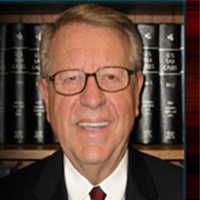San Juan Capistrano Wills & Probate Lawyer, California
Sponsored Law Firm
-
 x
x

Click For More Info:
-
Pacific Wealth Legal Advisors
130 South Chaparral, Suite 140-B Anaheim Hills, CA 92808» view mapEstate Law Small Firm. Big Difference.
Our attorneys have a unique and broad skill set enabling them to be excellent advisors.
800-878-2980
Includes: Estate Administration, Living Wills, Wills
Daniel J. Cooper
✓ VERIFIEDEstate, Wills & Probate
Daniel J. Cooper is a California attorney and has been the sole shareholder of Daniel J. Cooper, a professional corporation, since 1980. Mr. Cooper�... (more)
Michael Ignatius Goode
✓ VERIFIEDBusiness, Wills & Probate, Trusts, Estate Administration, Employment
Michael Goode is a practicing lawyer in the state of California. Mr. Goode received his J.D. from the Pepperdine University School of Law.
Christopher John Hoo
Wills, Trusts, Construction, Litigation
Status: In Good Standing Licensed: 16 Years
Linda Harper Wisener
Litigation, Wills, Trusts, Elder Law
Status: In Good Standing Licensed: 37 Years
 September Katje Anaheim, CA
September Katje Anaheim, CA AboutPacific Wealth Legal Advisors
AboutPacific Wealth Legal Advisors Practice AreasExpertise
Practice AreasExpertise


